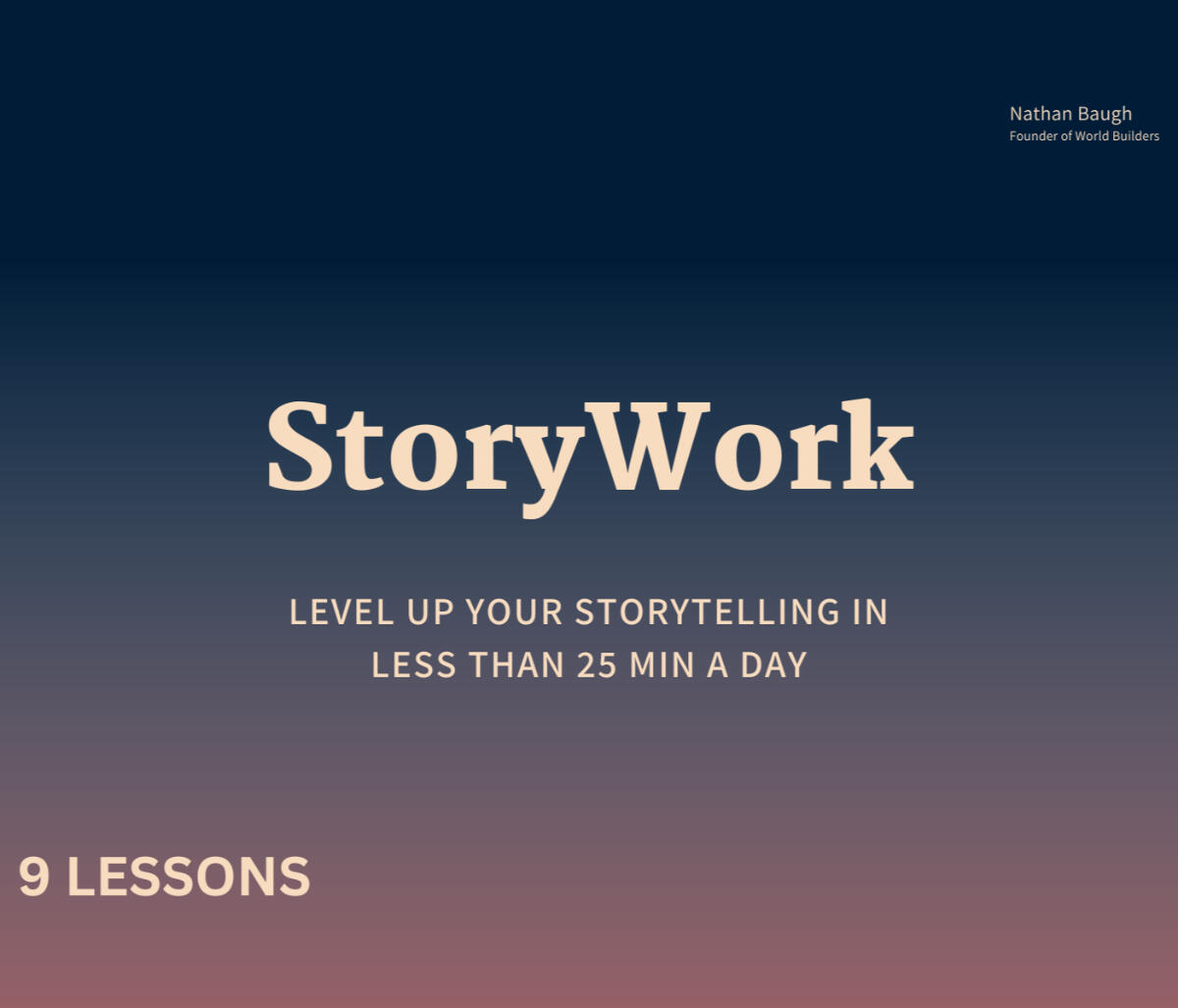- World Builders
- Posts
- But, Therefore
But, Therefore
A sneaky powerful lesson in storytelling from the creators of South Park
Hey — Nathan here.
In the last two weeks, I’ve heard the creators of South Park and Brandon Sanderson talk about the power of the simple word ‘But.’
When smart storytellers from different fields say the same thing, I pay attention.
Today’s hook comes from a 2018 bestseller. Hit me back with your best guess:
“Marsh is not swamp. Marsh is a space of light, where grass grows in water, and water flows into the sky.”
Read time: 2 min

On a recent episode of the My First Million podcast, Shaan Puri brought up the creators of South Park and their rule, “But, Therefore.”
I found this vid of the creators talking about it (important quote below):
We can take the beats of your outline, and if the words ‘and then’ belong between those beats… you got something pretty boring. What should happen between every beat you’ve written down is the words ‘therefore’ or ‘but.’
They’re not the only ones.
Separately, I came across Brandon Sanderson (maybe the most popular author of fantasy-fiction books in the world right now) talking about a similar idea:
I hunt for the word ‘and’ when I rewrite, especially at big moments of my story. Then I figure out how to make it the word ‘but’ instead.
This idea has quickly become one of my favorite storytelling techniques. Why? What do these words imply?
Unlike ‘and,’ which signals a continuation of whatever’s been happening, ‘but’ and ‘therefore’ signal either tension or progress.
‘But’ creates tension between the before and after. It implies a change. But not just any change, a change that went against whatever happened prior. That’s conflict. Tension. That’s what drives story.
Here’s a twitter thread where I use ‘But’ to create juxtaposition and catch the reader’s eye.
‘Therefore’ implies progress. An action taken because of another action. A sense of motion throughout your story. Your story hasn’t stagnated, it’s moving forward, moving toward something.
But, how do you put this into action?
You probably tell stories through writing. Whether it’s scripts for videos or speeches, a twitter thread, or even a book, take a look at your connecting words. Where do you use ‘and’? How can you replace it with ‘but’ or ‘therefore’?
If you can, do it. If you can’t, it may be worth a rewrite.
That’s the exact process Matt Stone and Trey Parker went through for each South Park episode. Write the script then edit it using this heuristic.
Brilliant in its simplicity.
Have a great weekend,
Nathan

A message from... Me!
The interest in this tweet blew me away...
One way to become a better storyteller:
Take your two favorite authors. I recommend one non-fiction and one fiction.
Copy, word for word, their best work. Do it by hand.
I chose Paul Kalanithi and Neil Gaiman.
It’s the single exercise that improved my writing the most.
— Nathan Baugh 🗺️ (@nathanbaugh27)
3:06 PM • Jan 5, 2023
In my experience, there are two ways to get good at storytelling:
Study the greats (what this newsletter is for)
Practice, practice, practice
I do a lot of practice through StoryWork.
And so many of you liked, commented, and sent me DMs about the practice I decided to turn it into a guided course for you.
Check it out:

Storyteller’s Finds
A wonderfully detailed breakdown of what made Carl Sagan such an effective speaker and storyteller.
Oprah’s 2012 commencement speech to Spelman College detailed her view of excellence, and it’s one of the best speeches I’ve listened to.
A newsletter I really enjoy that explains the world through data storytelling.
This essay from my friend Jay Acunzo went counter to the current mainstream AI debate. A good read to challenge your thinking.
Summed up in a meme…

